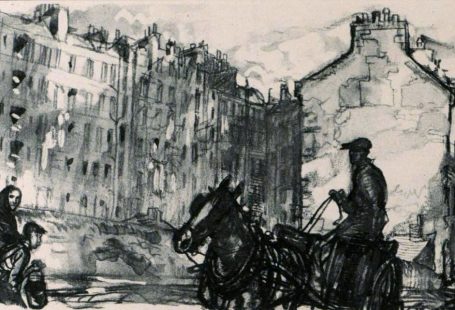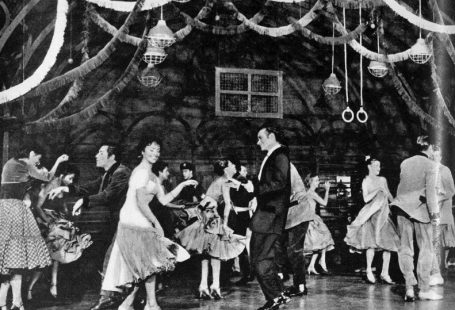‘Apple orchards have been a familiar characteristic of the European countryside for thousands of years,’ writes Edward Hyams in a 1974 article for the Illustrated London News. Indeed, he claims they have been in existence for 6,000 years, as an integral part of rural life and a mainstay of the rural economy. But by the late twentieth century, many orchards were beginning to disappear from the landscape, and with them, another way of rural life faded into memory. In this special blog we will explore, with help from articles sourced in the British Newspaper Archive, the decline of orchards in the twentieth century.
Illustrated Sporting & Dramatic News | 17 October 1956
A headline in the Birmingham Daily Post, 13 November 1971, states: ‘Census reveals annual decline in orchards.’ The article explains how ‘Britain’s orchards are declining in number year by year,’ although ‘the decline is mainly among those orchards which are not grown commercially, that is those which form a pleasant adjunct to a farm and provide free fruit for the general farmer’s wife.’
In the preceding two years, 7,000 acres of orchards were lost, no doubt because farmers had chosen to ‘put these orchards to more productive use.’ Indeed, farmers were encouraged to plough up available land and use it instead for crop planting, but other factors too lurked behind the decline of the orchard.
As Edward Hyams explains in his Illustrated London News article, ‘pruning the trees and picking the fruit are labour-intensive operations that cannot be mechanized.’ The main issues, therefore, are the need for land and the cost of labour, which was rising higher and higher by the early 1970s.
Illustrated London News | 1 December 1974
A pictorial piece in the Illustrated Sporting and Dramatic News, 3 February 1954, demonstrates the destruction of an orchard in action.
At the farm of Mr F B Stoddard, located in Bishop Frome, Herefordshire, new orchard-clearing techniques were demonstrated on his 70-year-old orchard. All sorts of techniques were demonstrated, including blasting and bulldozing. Of particular interest was the Fordson Major Diesel County Crawler machine, which was particularly effective in pushing over a forty-year-old tree, as seen below.
Illustrated Sporting & Dramatic News | 3 February 1954
Thus orchards suffered due to the necessity of feeding an ever-expanding population. But orchards did not lack investment towards their improvement. In an article by Colin Johnston Robb in the Belfast Telegraph, 4 May 1950, a rather space-age contraption is pictured, which promises to battle the dreaded May frosts once and for all.
Belfast Independent | 4 May 1950
It is in fact an infra-red machine, developed in the United States, which produces infra-red rays by burning oil, which prevents apple trees and their fruits from being damaged by frosts. Edward Hyams too speaks of more innovations nearly thirty years later, namely ‘some form of combine harvester incorporating a giant combing device to remove the fruit, a cutter-bar mechanism to prune the trees, and perhaps a shredder to macerate the remains and regurgitate them as a surface mulch.’
However, despite these innovations, the number of orchards that were once a staple of the countryside landscape began to decline. But this does not stop them being remembered with some nostalgia within the pages of the British Newspaper Archive.
Edward Hyams writes: ‘the the conventional apple orchard will eventually disappear. I regret it; I know only one thing in the countryside more beautiful than an old but well-tended apple orchard in flower, and that is an orchard of 60 or 70-year-old cherry trees in flower.’
Illustrated Sporting & Dramatic News | 10 October 1962
Colin Johnston Robb again writes even more of an eulogy for ‘apple blossom time:’
The fruit trees in their snowy and carmine garb fill the eye with delight and present a panorama equal to that of fairyland. They herald the coming of pleasant and wholesome fruits and bear pleasing evidence of good horticulture.
Illustrated Sporting & Dramatic News | 7 November 1962
The old days of apple picking and the old-fashioned orchards of days gone by will be fondly remembered by many. Furthermore, these days will not fade out of memory due to the unique record provided by the British Newspaper Archive, and the ongoing digitisation of millions of pages of newspapers.












